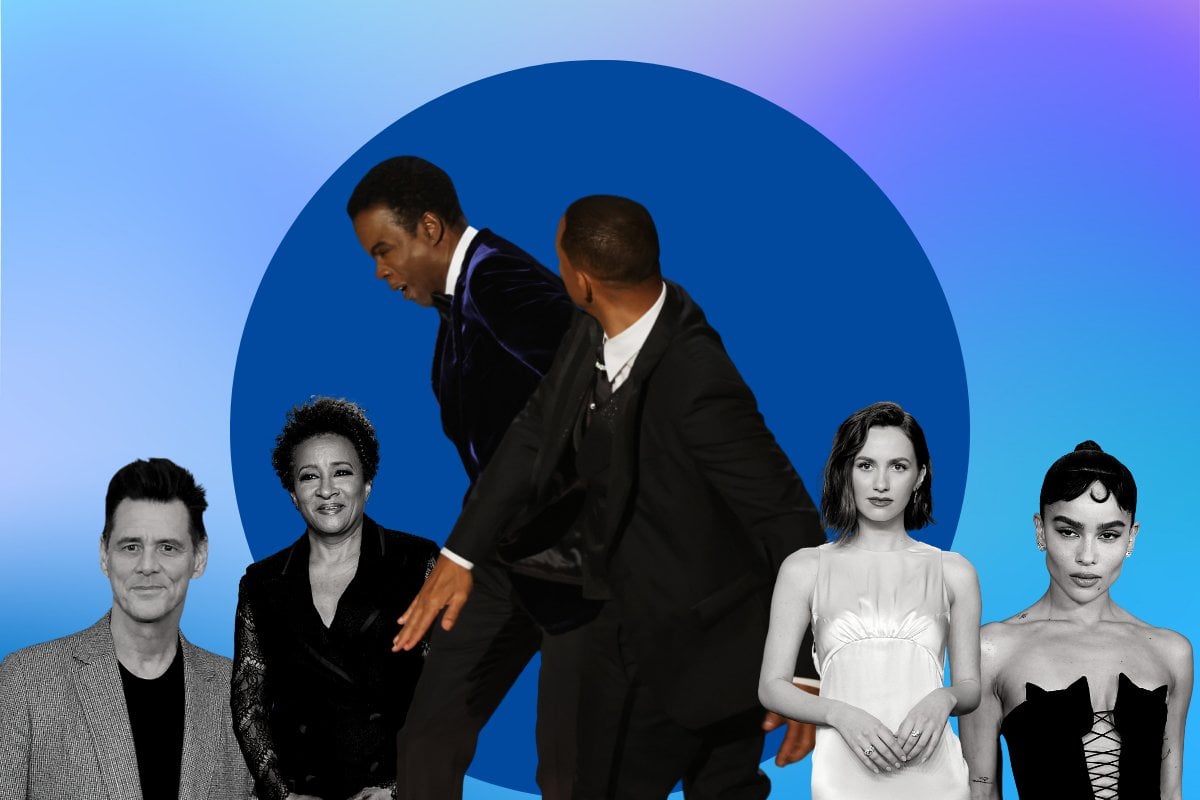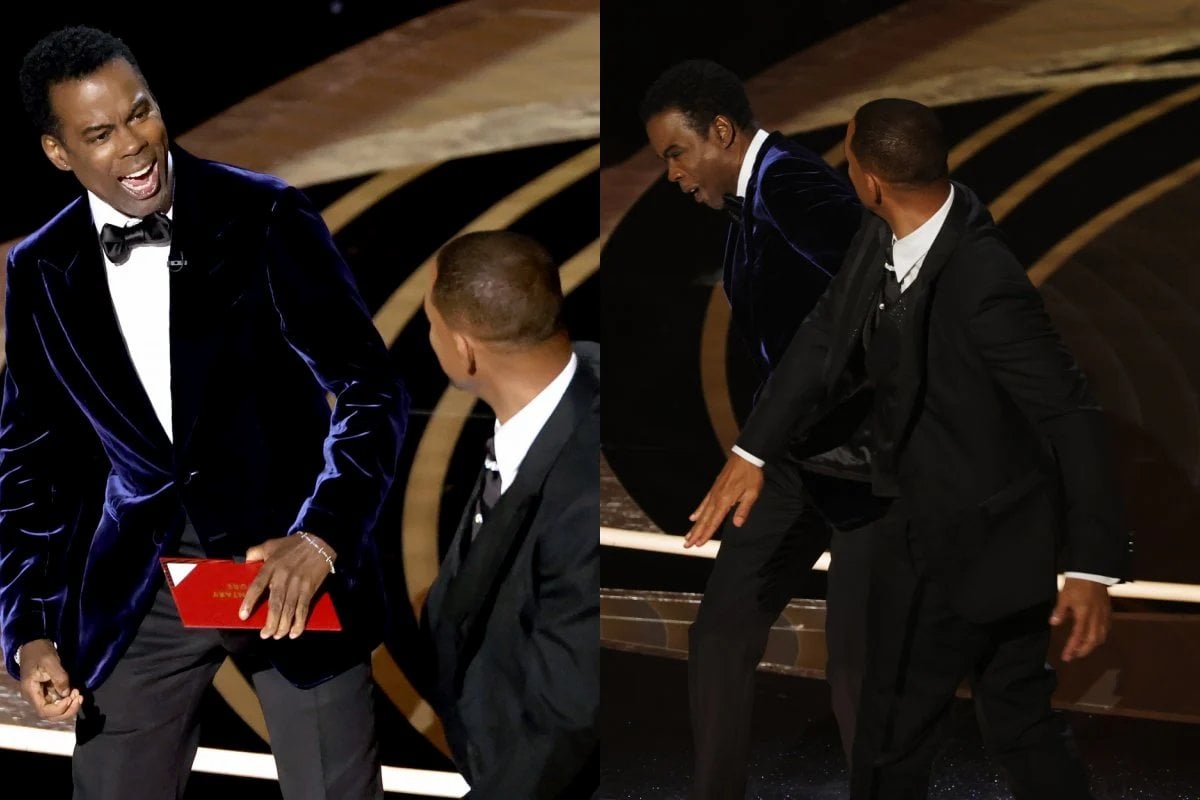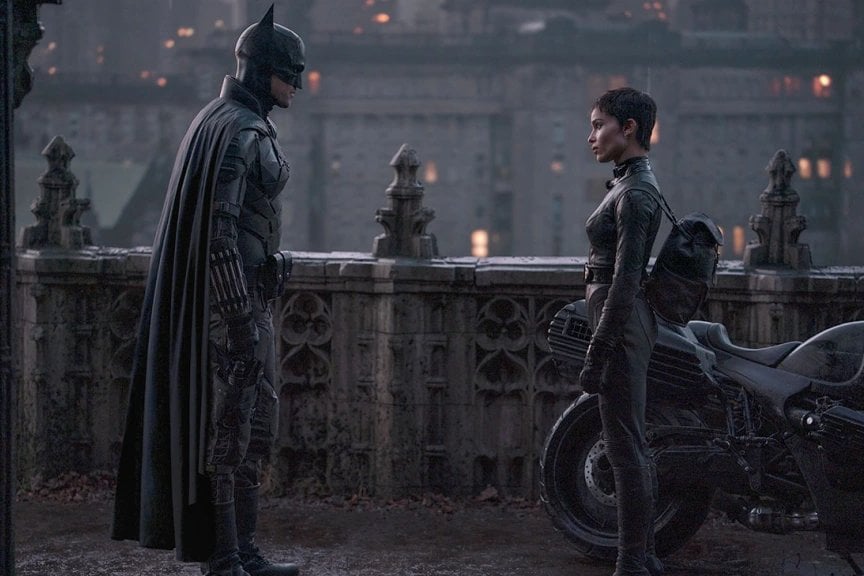
Daniel Radcliffe is 'dramatically bored' by the opinions on Will Smith, Chris Rock, and The Slap seen around the world.
First of all, 'dramatically bored' is a fantastic turn of phrase that I will be adding it to my vocabulary. Secondly, he's not the only one. And third? It is a genuine surprise that Radcliffe has not been publicly shamed for sharing an opinion about others sharing their opinions.
Such is the state of the internet right now.
I don't think I need to offer much background on 'The Slap'. In a week, it became one of the most divisive, infamous moments in pop culture history. The only winners in this scenario are Faye Dunaway and Warren Beatty, who read out La La Land as Best Picture in 2017 when the winner was actually Moonlight. At least they are no longer the faces of the Oscars greatest debacle.
There have been plenty of worthy, important discussions since the March 27 event in terms of how it intersects chronic illness, romanticism of explanations like 'love makes you do crazy things', and societal dehumanisation of Black women.
I'm not here to add to those discussions. That isn't my place.
Instead, let us dissect how the Slap has become Hollywood's biggest trap.
 Will Smith and Chris Rock's altercation. Image: Getty.
Will Smith and Chris Rock's altercation. Image: Getty.
The dust has barely settled around Smith, Pinkett Smith or Rock, and yet other celebrities, with various levels of proximity to them, have faced the wrath of the post-Slap era.
Let's begin with Euphoria actor Maude Apatow, who has not actually commented on the events of Oscars night at all. Unfortunately for her though, her dad - very famous director/producer/screenwriter Judd Apatow - did.
He had tweeted an admittedly dramatic take very early into the Slap discourse, writing that Smith "could have killed" Rock. He deleted the tweet shortly after.
In the aftermath, spurred by users who believed Apatow's tweet was absurdist and racist, his daughter was made to clarify a tweet that was unearthed from 2011.
"I'm at that age where everything you say is either incredibly racist or extremely inappropriate," she had written as a 13-year-old. It was interpreted that she was admitting to being bigoted, which led to a Twitter storm.
Then there was Zoë Kravitz, who captioned images of her at the Oscars and Vanity Fair after party like this:
 Image: Instagram.
Image: Instagram.
 Image: Instagram.
Image: Instagram.
Within minutes, she was trending on Twitter. Within hours, tweets of old interviews, social media posts and YouTube clips had been collated into a dossier of faux pas, with hundreds of thousands of likes. Among them were posts in which Kravitz suggested she wanted to be known as 'an artist' over 'a Black artist', and inappropriate comments she made in her 20s about her closeness with a then teenage Jaden Smith.
When Jim Carrey criticised Smith's onstage behaviour as "selfish", the internet sent a 1997 MTV Movie Awards clip of him forcing a kiss on Alicia Silverstone, then 19, viral.
After Oscars co-host Wanda Sykes said she wanted an apology from Smith, the top tweet when searching her name became one criticising her decision to use a white sperm donor when planning a family with her wife.
Then there's Amy Schumer. Tiffany Haddish. Jameela Jamil. Kathy Griffin.
Each one offered their opinions on that moment. Whether they needed to or not is... well, that's not the question at hand. But once they did - by their own accord or because it was the celeb interview question of the week - they found themselves embroiled in a storm much more wide reaching than first thought.
From Twitter, the criticisms and 'receipts' of their behaviour quickly made their way onto TikTok, Reddit and other social media, before being splashed across homepages of media around the world.
This is not intended to be a justification or excuse for problematic behaviour. These people can do - and probably have done - bad things. But it was like the Oscars was the first domino, and each person who spoke (or was related to someone who spoke) subsequently fell over.
The Slap didn't create this 'gotcha phenomenon', but it certainly accelerated it.
Kravitz has been an 'internet favourite' for months now, as her profile elevated with a role as Catwoman in the latest Batman film. A viral tweet sent after The Slap but before her Instagram captions reads: 'Imagine getting slapped in front of Zoë Kravitz, I would end my life' and has more than half a million likes.
The Kravitz 'receipts' have been available online for years, but they did not make a splash until the internet decided they were angry at her.
As it turns out, there are people or groups sitting on these details until the opportune moment - the one where the hive mind would have no choice but to make them a trending topic. There are also those dedicated to feverishly searching for them after a hint of discontent towards someone.
 Image: Warner Bros. Pictures.
Image: Warner Bros. Pictures.
For a moment there, even Robert Pattinson was in the post-Slap line-of-fire. A user had accused him of racism, based on a screenshot from a 12-year-old interview.
Except Pattinson did not utter the alleged racist quote at all.
The user at the heart of it all was outed as a long-time Pattinson hater, but that isn't the fact most will remember: his posts have had thousands of impressions, and dozens of copycats have popped up since.
Watching this all play out in such a formulaic way raises questions about motivations, algorithms and just how much the hive care about the issues they claim to.
Are they sharing this screenshot from 2012 because they truly care about the problem at hand? Will they take further actions to raise awareness of the behaviour they are critical of in the 'real world'? Have they considered the consequences of their posts on those they claim to be defending or protecting? Are they doing this because they can then share self-promotion after their 'receipts' go viral?
The real answer probably lies somewhere in the middle of those questions.
The only thing I know for sure: It feels unhealthy to be so determined and attracted to pile ons.
These 'cancellations' are the internet's new favourite form of entertainment and that is a disservice to the often very serious issues being discussed.
But hey, in this current climate maybe we should all make like Radcliffe and be 'dramatically bored', just to be safe.
Chelsea McLaughlin is Mamamia's Senior Entertainment Writer. For more pop culture takes, sarcasm and... cat content, you can follow her on Instagram.
Feature image: Getty/Mamamia.

